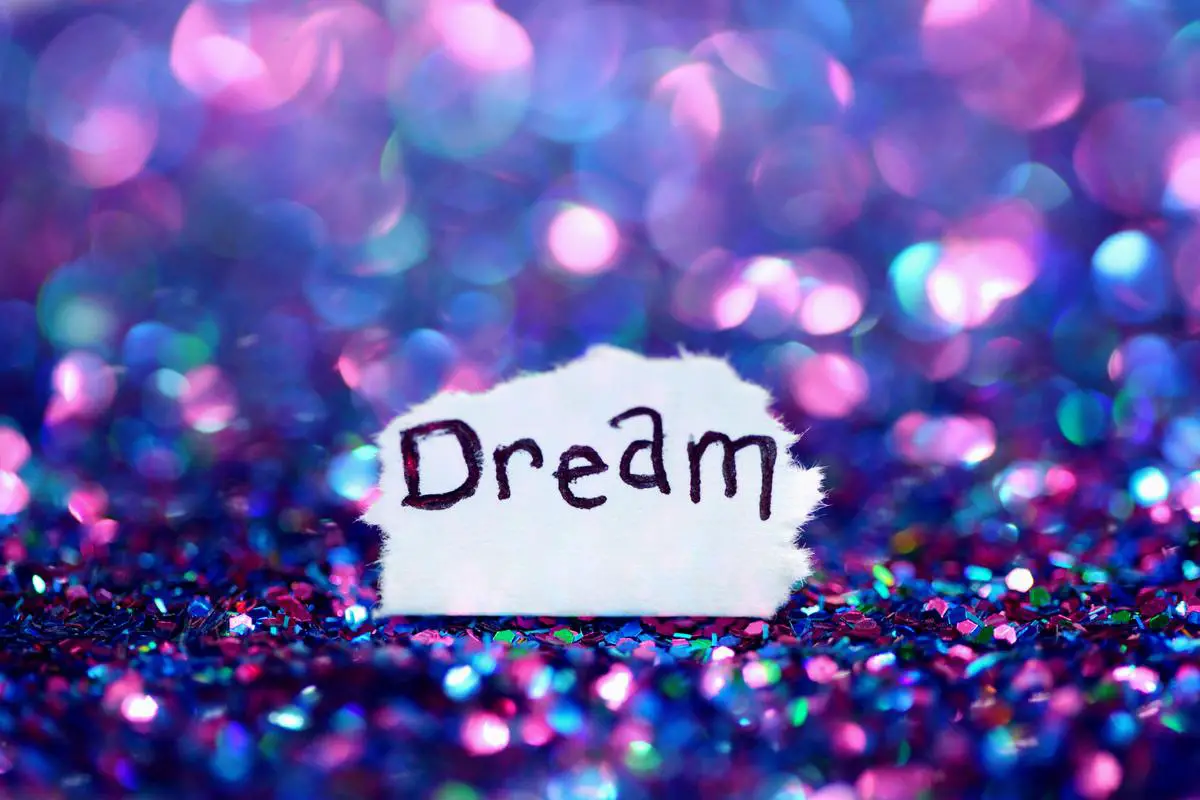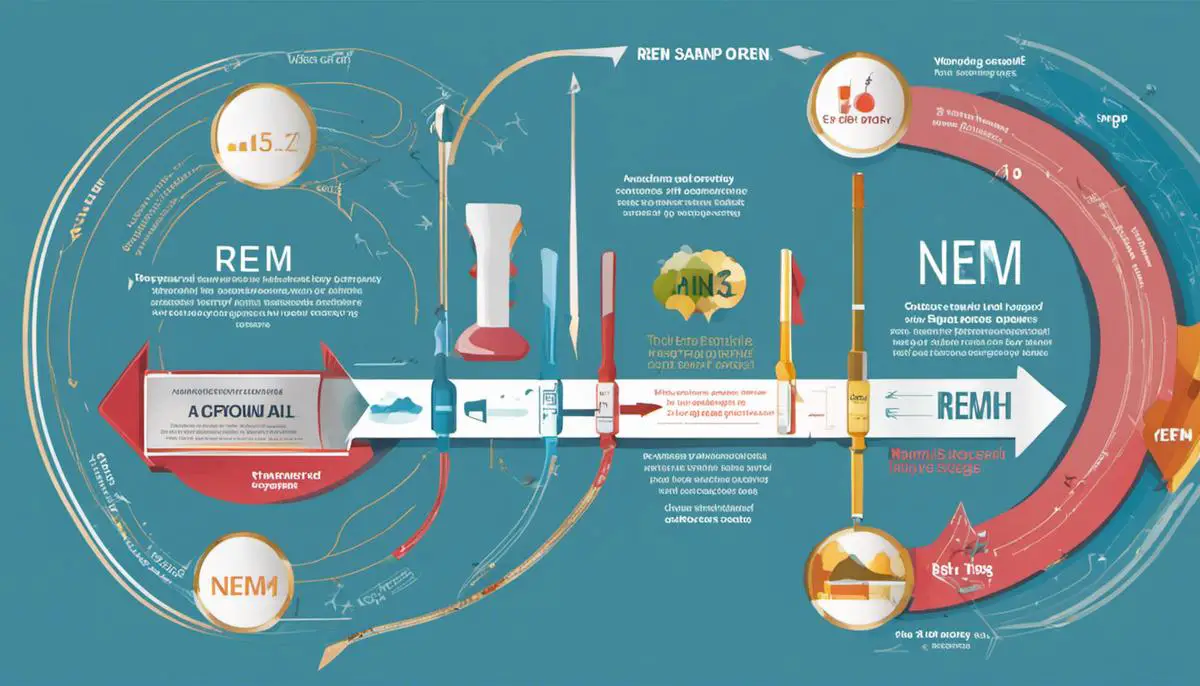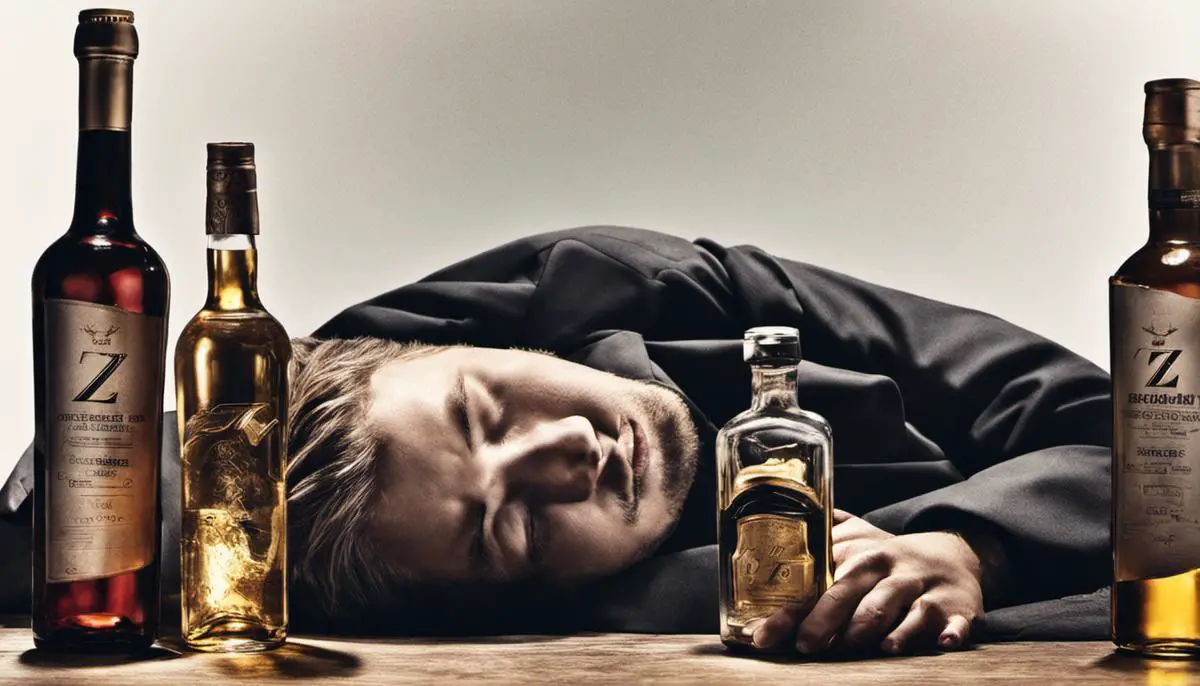Each night as we lay our heads to rest, the fascinating world of dreams unfolds. The phenomenon of dreaming, a captivating blend of psychology and neurology, offers an insight into the vast and complex workings of our minds. However, for some, dreams can become a source of anguish or disturbance, prompting a quest for ways to suppress them. Among the myriad of possible suppressants, one stands out – alcohol. The notion of alcohol as a dream suppressant has caught the public imagination, yet, is it a fact or a fiction? In this exploration, we will delve into the intricate science of dreams and unravel the effects of alcohol on them. We’ll expose the risks of using alcohol in such a manner and suggest healthier, safer alternatives for managing dreams.
Understanding the Science of Dreams
Understanding Dreams: A Fascinating Journey into the Mind
Dreams are an intriguing neurological phenomenon occurring during the REM (Rapid Eye Movement) sleep phase. Renowned psychologists such as Sigmund Freud and Carl Jung have theorised that dreams reflect subconscious thoughts, inner conflicts, and desires. Modern neuroscience, however, focuses more on the physiological processes involved in dreaming.
Studies indicate that dreams play a crucial role in emotional regulation, memory consolidation, and creative problem-solving. Neurologists like Matthew Walker and Allan Hobson stress the importance of dreams for mental health as they allow the brain to process emotions and memories, potentially helping to cope with trauma and stress.
The Effects of Alcohol on Dreaming
Alcohol interacts with our central nervous system in complex ways, leading to significant impacts on the quality and quantity of our dreams. While alcohol might initially promote sleepiness due to its sedative effects, it later disrupts the normal sleep cycle, particularly the REM sleep phase, when most dreaming occurs.
Studies conducted by researchers like Timothy Roehrs at the Henry Ford Hospital in Detroit reveal that alcohol consumption can cause a “rebound effect.” This means the brain may respond to alcohol’s suppression of REM sleep early in the night by increasing REM sleep later on, often resulting in intense and disruptive dreams.
Suppressing Dreams with Alcohol
Many people may use alcohol in an attempt to suppress or self-medicate unwanted dreams or nightmares, especially those with conditions like post-traumatic stress disorder (PTSD). According to a study led by psychologist Erin Walsh from the Australian National University, alcohol might temporarily blunt the emotional intensity of dreams due to its effects on ANS (Autonomic Nervous System) activity.
However, this immediate suppression can lead to a long-term increase in disturbing dreams once the alcohol wears off. This phenomenon, known as REM rebound, can promote vivid and often unsettling dream experiences. Thus, using alcohol as a coping mechanism can potentially exacerbate sleep disturbances and lead to a vicious cycle of increased alcohol use and increasingly disturbing dreams.
The Perils of Relying on Alcohol to Suppress Dreams
Turning to alcohol as a means of suppressing dreams can not only be ineffective but also detrimental to your well-being. It can potentially aggravate sleep disorders and contribute to the development of alcohol dependency along with an array of other health consequences. A healthier and often more efficacious approach lies in understanding and treating the root causes of distressing dreams or nightmares via therapeutic routes such as Cognitive Behavioral Therapy (CBT) or Eye Movement Desensitization and Reprocessing (EMDR).
Dr. Dominique Steinberg, a psychiatrist from the University of California, strongly advises seeking professional assistance for dealing with sleep abnormalities or issues of alcohol misuse. Correspondingly, the American Academy of Sleep Medicine warns against using alcohol as a sleep aid. They advocate that any persistent sleep problems should be discussed with a healthcare provider.

Photo by sharonmccutcheon on Unsplash
The Impact of Alcohol on Sleep and Dreams
The Effect of Alcohol on Sleep Patterns
While it’s true that alcohol, given its depressive nature, can initiate a slumber-like state quickly, this short-lived solution can evolve into sleep disturbances later on in the night. Standard sleep cycles consist of both rapid eye movement (REM) sleep and non-rapid eye movement (NREM) sleep phases. REM sleep is the stage most closely linked to vivid dreaming, and it plays a vital role in optimal cognitive operation and memory retention. On the other hand, NREM sleep covers deep sleep stages crucial for the body’s relaxation and rejuvenation processes.
An intake of alcohol prior to sleep can lead to the suppression of the REM sleep stage, where most dreaming occurs, initially. This results in the body spending more time in the deep sleep phase while curtailing the REM sleep phase. Such a disruption in the equilibrium of sleep stages can consequently influence an individual’s ability to dream.
The Rebound Effect
When the alcohol’s effects wear off, the body can rebound into REM sleep, which is often associated with an increase in dreams, often vivid or disturbing. This phenomenon is known as the “rebound effect”. It commonly occurs in the second half of the night when the alcohol consumed earlier has been metabolized by the body.
Alcohol and Dream Suppression
Research has indicated that alcohol can potentially suppress dreams. In one study, participants who consumed alcohol before bed reported fewer dreams, supporting the thesis that alcohol can potentially decrease REM sleep and suppress dreams. This doesn’t mean the dreams are lost, but the ability to recall them may be impaired due to the use of alcohol.
However, alcohol-induced dream suppression might not be long-term. Chronic alcohol consumption can lead to alcohol tolerance where the brain adjusts to the continual presence of alcohol. In this case, alcohol might have less and less impact on the suppression of dreams as the brain tries to compensate for the artificially manipulated sleep states.
Alcohol Withdrawal and Dream Intensity
It’s also essential to mention that alcohol withdrawal can have the opposite effect, causing extremely vivid and intense dreams or nightmares. This is another manifestation of the body’s reaction to the sudden absence of alcohol, leading to the rebound effect. Withdrawal symptoms can disrupt sleep and cause a state of hyperarousal leading to more vivid, easily-recalled dreams.
Wrapping Up
Alcohol impacts the quality of sleep by disrupting the standard sleep cycle and suppressing the initial stages of REM sleep, which in turn results in fewer dreams. However, reducing or completely withdrawing from alcohol may have a rebound effect causing an increase in unusually vivid or intense dreams. Clearly, the bubbles in your beer, wine or spirit play a substantial role in modulating dream experiences. Thus, using alcohol as a sleep aid can lead to a variety of sleep disorders and overall poor sleep quality.

Alcohol as a Dream Suppressant: Fact or Fiction?
Delving Into the complex relationship between Dreams and Alcohol
Dreams, from a scientific perspective, are a natural experience that transpire during the Rapid Eye Movement (REM) stage of our sleep cycle. These occurrences can be influenced by a range of factors, including alcohol consumption. Alcohol, also known as ethanol in scientific terms, is a mind-altering substance that has the potential to change the functioning of the brain, ushering shifts in how we perceive things, our moods, our conscious awareness and behavior.
Alcohol’s Impact on the REM Sleep
Research has found that alcohol can disrupt the sleep cycle, particularly the REM phase when most vivid dreams typically occur. Alcohol has a sedative effect which can help you fall asleep faster. However, as the night progresses and the effects of the alcohol start to wear off, there is often a “rebound effect” where the REM sleep stage becomes longer and more intense. This can result in more vivid and realistic dreams.
Fact or Fiction: Alcohol Suppresses Dreaming
The idea that alcohol can act as a dream suppressant may be a widespread belief, but it isn’t precisely accurate. Heavy alcohol consumption before bedtime often leads to a reduction in the initial REM sleep phases. This may give the impression of having fewer or no dreams because we’re most likely to remember our dreams when we wake up from REM sleep.
However, as the effects of alcohol wear off, your body goes into REM rebound, where REM sleep takes place for more extended periods. This stage is often accompanied by intense, vivid dreams, or nightmares. While alcohol may appear to suppress dreams initially, it actually leads to more intense dreaming later in the sleep cycle.
Link Between Alcohol Abuse and Nightmares
There’s also a strong link between alcohol abuse and an increase in disturbing dreams or nightmares. Studies show that individuals suffering from alcohol dependency often experience violent or threatening dreams. These are believed to result from alcohol withdrawal, which affects the brain’s chemical balance and induces unsettling dreams.
Alcohol and Dream Recall
Alcohol reduces the ability to recall dreams, a phenomenon known as “dream amnesia.” While heavy drinkers may dream as much as or even more than those who don’t drink, they often can’t remember their dreams due to the effects of alcohol on memory consolidation during sleep.
An Expert Perspective
There’s a general caution when it comes to alcohol consumption, particularly around bedtime. Experts advocate moderate drinking due to the potential side effects on sleep patterns and dreams. Persistent and excessive consumption of alcohol can lead to sleep-related disorders, adversely affect memory, and amplify existing mental health conditions.

The Risks of Using Alcohol as a Dream Suppressant
The Risks Behind Alcohol as a Dream Deterrent
Alcohol’s influence on dream suppression is primarily due to its immediate effects on the structure of our sleep patterns. Nevertheless, the fact is, alcohol’s significant impact on one’s sleep cycles can have far more dangerous consequences over the long haul. It promotes a phase of slow-wave sleep patterns, referred to as delta activity, where dreams usually occur. This might explain why some people seem to dream less when they consume alcohol.
While it’s true that alcohol might reduce dream activity temporarily, this doesn’t make it a safe or healthy choice to suppress dreams. Consistent alcohol use can lead to serious health issues like liver and heart diseases, and heightened stroke risk. Moreover, it’s well recognised that alcohol can significantly interfere with the natural sleep cycle.
Understanding REM: The Stage of Sleep Where Dreams Occur
An important aspect to consider is how alcohol affects the REM (Rapid Eye Movement) stage of sleep where dreams typically occur. Alcohol can delay the onset of the REM sleep stage and may even curtail the time spent in this essential phase. This can rob people of the restorative benefits of sleep, leaving them feeling groggy and unfocused the next day.
Alcohol Dependence: A Hazardous Outcome
One of the most perilous risks of using alcohol as a dream suppressant is the possibility of developing an addiction or dependency. Alcohol dependency implies a chronic disease, where an individual experiences a compulsion to drink, is unable to control their drinking, and feels anxious when they are not drinking. Using alcohol regularly to suppress dreams significantly increases the risk of developing this dependency.
Long-term Impact of Using Alcohol as a Dream Suppressant
Over time, the use of alcohol to suppress dreams can result in a form of sleep deprivation, coupled with alcohol’s negative physiological impact. The lack of REM sleep when using alcohol can lead to cognitive impairments such as problems with memory, attention, and cognitive flexibility. Individuals may also experience daytime impairment, chronic fatigue, and other mental health issues such as depression or anxiety.
Consequences of Alcohol Dependency
Alcohol dependence isn’t just a risk to physical health but can also cause severe disruptions on an individual’s social, professional, and personal life. Problems at work, broken relationships, isolation, and financial issues are commonly seen among those who misuse alcohol. Additionally, it can lead to serious legal repercussions, primarily if it’s used as a coping mechanism or an escape from the stresses of day-to-day life.
Summary
While using alcohol to suppress dreams may appear effective in the short term, the long-term implications of this method are both harmful and counterproductive. Instead of addressing the root cause of distressing dreams, such as persistent nightmares, the use of alcohol potentially introduces new, more severe complications. For this reason, the advised course of action for dealing with troublesome dreams is to seek professional assistance rather than resorting to self-medication via alcohol.

Healthy Alternatives for Dream Suppression
Elucidating Dream Suppression
The usage of alcohol as a means to suppress disturbing or undesirable dreams might seem like an immediate fix for some, but it’s far from being a beneficial practice. Prolonged, heavy drinking can cause significant damage to various bodily functions, including the brain. This adversely affects sleep cycles, which in turn has ramifications on both the quantity and quality of dreams. Furthermore, the termination of alcohol consumption often triggers a rebound effect, characterized by the onset of particularly vibrant and occasionally unsettling dreams.Healthy Alternatives for Dream Suppression
Rather than using alcohol as a coping mechanism, several healthier options might help manage or even suppress disturbing dreams.Adopting a Healthy Lifestyle
Healthy lifestyle changes can frequently impact the nature and frequency of your dreams. Regular exercise, for instance, can help alleviate anxiety and enhance deep sleep. A balanced diet, especially one low in caffeine and sugar, could reduce the likelihood of experiencing anxiety-driven dreams. Establishing a consistent sleep schedule may also help to regulate sleep patterns and minimize disruptions.Stress Management
Stress is a prevalent trigger for disturbing dreams. Engaging in stress management practices, such as meditation, deep breathing exercises, yoga, or even leisure reading, could positively affect your overall mental state. Reducing stress levels before sleep time would likely lead to a more peaceful sleep void of disturbing dreams.Cognitive Behavioral Therapy (CBT)
In some cases, disturbing dreams could stem from an underlying mental health condition. Cognitive Behavioral Therapy (CBT), a common type of talk therapy, can effectively manage various sleep disorders by changing negative thoughts and behaviors. It may teach you ways to handle nightmares or resolve issues causing distressing dreams.EMDR Therapy
Eye Movement Desensitization and Reprocessing (EMDR) is a form of psychotherapy used to alleviate distress linked to traumatic memories, often considered effective for dream suppression related to trauma. This therapy involves the client recalling traumatic experiences while the therapist directs their eye movements. EMDR works to change how the memory is stored, reducing its intensity and impact on dreams.Medications and Supplements
In some extreme cases, medication might be necessary. Some antidepressants, antipsychotics, or sleeping pills may suppress or alter dreaming. However, any medication should only be taken under the guidance of a healthcare professional. Many also opt for natural remedies such as Melatonin supplements, which helps regulate the sleep-wake cycle, or certain medicinal teas with calming effects.Remember that significant, frequent disturbing dreams may indicate underlying health issues.
It’s important to consult a healthcare provider or a mental health professional to discuss your symptoms and concerns properly. They can provide tailored advice and treatments for your situation instead of resorting to harmful methods such as alcohol.
The journey through the diverse landscape of dreams and the impact of alcohol on them is both intriguing and enlightening. The truth behind alcohol’s effect on our dreams may not be as straightforward as it appears. Alcohol may temporarily suppress or alter dream cycles, but it is not a magic potion against dreams. On the contrary, its use promotes a host of health risks that far outweigh any immediate effects. The pursuit of healthier options for dream management and suppression, such as lifestyle changes and specific treatments, can lead to long-term benefits for our overall sleep health. So as we strive to understand and manage our dreams, it remains crucial to seek sustainable, healthy strategies rather than quick fixes that may be harmful in disguise.
